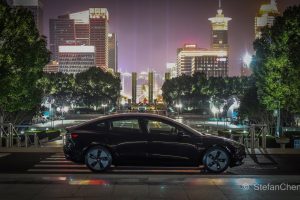- 💼 BYD, China’s leading new energy vehicle manufacturer, has decided against entering the US auto market.
- 🇺🇸 Complications within the US EV market, including a slowdown in electrification and complexity, deter BYD’s plans.
- 📉 Electric vehicle sales in the US are predicted to slow in 2024, with Ford and GM scaling down production.
- 💰 Interest rates and consumer preferences play a role in the demand for electric vehicles in the US.
- 🤝 Politics and international relations, particularly between the US and China, impact BYD’s decision-making process.
- 🌎 BYD is exploring opportunities in other parts of the Americas, such as South America and potentially Mexico.
In recent news, China’s top new energy vehicle manufacturer, BYD, has announced its decision to refrain from entering the US auto market. This move raises questions about the complexities and challenges faced by foreign automakers in navigating the dynamics of the US electric vehicle (EV) landscape.
Assessing Market Complications
The decision by BYD underscores the intricate nature of the US EV market, which is experiencing a slowdown in electrification efforts. Several factors contribute to these complications:
- Slowdown in EV Market: The US EV market is witnessing a deceleration in growth, as indicated by forecasts predicting a decline in electric vehicle sales for the year ahead.
- Automaker Adjustments: Major players like Ford and General Motors are scaling down their EV production plans, possibly in response to shifting consumer demands and market dynamics.
- Consumer Preferences: Interest rates and consumer preferences play a crucial role in shaping the demand for electric vehicles. Rising interest rates may impact affordability and purchasing decisions.
Political and Economic Influences
Beyond market dynamics, political and economic factors also come into play:
- US-China Relations: Tensions between the US and China, compounded by trade disputes and geopolitical tensions, create uncertainties for Chinese companies like BYD looking to enter the US market.
- Legislative Environment: Policies and regulations, such as the Inflation Reduction Act of 2022, which discourages reliance on foreign entities, further complicate BYD’s prospects in the US.
Exploring Alternatives
While BYD is stepping back from the US market, it is actively exploring opportunities in other regions:
- South America: BYD’s focus on South America reflects a strategic shift towards emerging markets with growing potential for electric vehicles.
- Potential in Mexico: Speculation about BYD’s interest in Mexico suggests a willingness to explore new avenues for expansion in the Americas.
Conclusion: Navigating a Complex Landscape
BYD’s decision not to enter the US auto market sheds light on the multifaceted challenges faced by international automakers in the evolving EV industry. As the landscape continues to evolve, companies must carefully assess market dynamics, geopolitical influences, and consumer trends to chart a successful path forward.
In a rapidly changing world, flexibility, adaptability, and strategic foresight will be key in navigating the complexities of the global auto market.





